
We’ve all heard about it, but what is ACL? Your ACL is your anterior cruciate ligament, a band of fibrous tissue that joins your thigh and shin bones together at your knee joint. It helps to stabilise your knee when you perform front to back and pivoting or twisting movement.
Here at Ramsay we understand the pain and anxiety that an ACL knee injury can cause and, the importance of early surgery to prevent further damage and to get you back to enjoying your daily activities and sporting pursuits as soon as possible.
We endeavour to offer our patients rapid appointments with an expert orthopaedic knee surgeon. Our hospitals are fully equipped with modern facilities to perform ACL reconstruction and onsite support services such as physiotherapy and imaging.
ACL knee injuries can happen whilst taking part in sports such as skiing, tennis, squash, football and rugby. They are a common types of knee injury where your ACL ligament is torn or ‘ruptured’.
An ACL rupture may stop you from doing your normal activities or sports as your knee loses its full range of motion, becomes unstable and painful. Your knee may give way or it may feel like it is giving way. ACL repair surgery, known as ACL reconstruction, may then be recommended to rebuild your torn ligament.
The benefits of successful reconstruction ACL surgery are that your knee should be stabilised and therefore not give way anymore. ACL keyhole surgery aims to relieve your pain and allow you to be more active and return to playing some or all of your sports such as football, rugby, netball or skiing. It also reduces your risk of further knee injury.
ACL reconstruction surgery is a usually performed as a keyhole procedure so that it is less invasive than if it were performed using open surgery. This means patients benefit from less pain, minimised risk of infection and, a faster recovery.
Arthroscopic ACL reconstruction is carried out under general anaesthetic or a spinal anaesthetic and typically takes about an hour.
Your surgeon will then make small cuts in the skin over your knee and insert a thin, flexible tube with a light and camera on the end of it, known as an arthroscope, to see inside your knee.
The remnants of your torn ACL are removed and replaced using a graft usually taken from taken from your patellar tendon or hamstring. Sometimes a graft from a donor will be used.
The replacement ligament graft is fixed into place with special screws drilled into holes in your bones.
ACL reconstruction is a surgical operation and therefore carries the general risks of surgery including: excessive bleeding, wound infection, developing a blood clot or, an unexpected reaction to the anaesthetic.
Complications specific to ACL reconstruction surgery include:
If you decide to pay for your treatment, Ramsay offer an all-inclusive Total Care package, where a single one-off payment at a pre-agreed price, delivering direct access to all the treatment you need for complete reassurance. You can also spread the cost of your treatment with finance options available.
An ACL Reconstruction may be covered by your medical insurance policy. We advise you to check directly with your insurance provider and get written confirmation before commencing treatment.
You may be able to go home the same day as your surgery or it may be recommended for you to stay overnight following your ACL reconstruction treatment.
One of our experienced physiotherapists will give you guidance on exercises and a rehabilitation programme to help you recover as quickly as possible.
You will need to follow your knee surgeon’s advice regarding driving and going back to work as everyone’s recovery rate is different.
An ACL reconstruction recovery typically takes approximately 6 months but it can take up to a year. Most people return to their sporting activities six months after their operation.

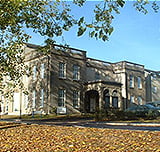
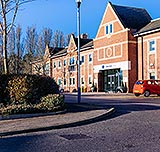

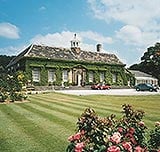
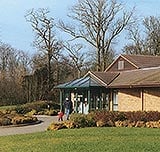
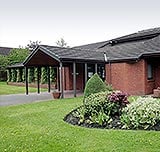
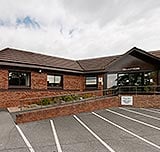
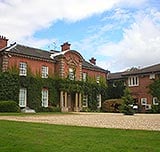
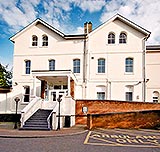
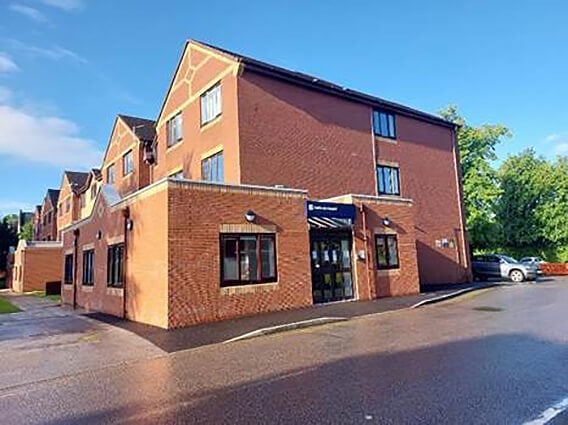

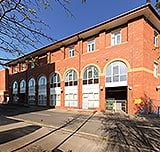
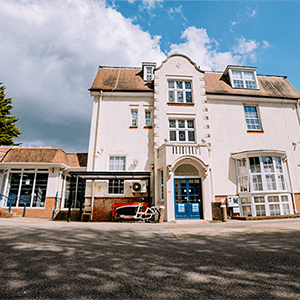
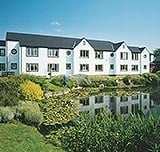

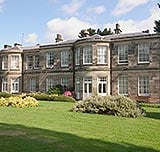

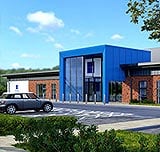
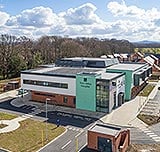
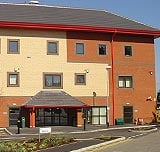
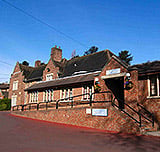
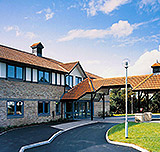

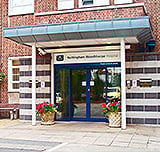
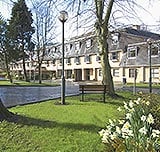
Mr James Hahnel, based at The Yorkshire Clinic, Bingley, is at the forefront of robotic-assisted joint replacements. Discover how his precision-led approach is transforming recovery outcomes for patients across Yorkshire.
Following months of hard work from members of our mobile diagnostic team, RDUK, Ramsay's Mobile Diagnostic Unit, is proud to announce its award of the Quality Standard for Imaging (QSI) Quality Mark.
Ramsay Health Care are proud to have been recognised as 'Highly Commended' for the Excellence in Clinical Innovation HSJ Independent Healthcare Providers Awards 2025! This is a great recognition of an outstanding dedication to support of the NHS and improvement in healthcare services.
The information, including but not limited to, text, graphics, images and other material, contained on this website is for educational purposes only and not intended to be a substitute for medical advice, diagnosis or treatment. Always seek the advice of your physician or other qualified health care provider with any questions you may have regarding a medical condition or treatment.
No warranty or guarantee is made that the information contained on this website is complete or accurate in every respect. The testimonials, statements, and opinions presented on our website are applicable to the individuals depicted. Results will vary and may not be representative of the experience of others. Prior patient results are only provided as examples of what may be achievable. Individual results will vary and no guarantee is stated or implied by any photo use or any statement on this website.
Ramsay is a trusted provider of plastic or reconstructive surgery treatments as a part of our wrap-around holistic patient care. Our personal, friendly and professional team are here to support you throughout to ensure the best possible care. All procedures we perform are medically justified, and we do not offer treatments that are purely aesthetic / to change your appearance.
Ramsay Health Care UK is not currently recruiting for any roles based outside of England. If you are interested in applying for a role with Ramsay Health Care UK, please note that all available positions are advertised exclusively on our official website: https://www.ramsayhealth.co.uk/careers. Be cautious of individuals or organisations that approach you directly for remotely-based roles. Always verify the authenticity of the job offer and be careful with whom you share your personal information. For more information and advice on employment fraud, please visit: https://www.ramsayhealth.co.uk/careers/recruitment-fraud